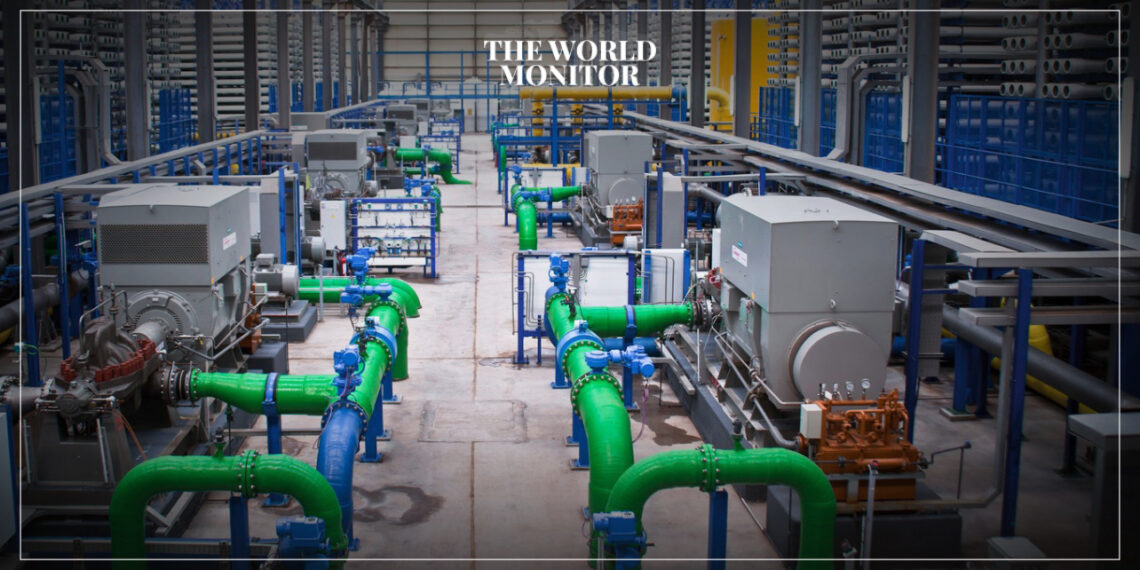Mohamed Boutabba, CEO of Algerian Energy Company (AEC), announced that by the end of 2024, Algeria is set to produce 3.7 million cubic meters of desalinated water daily, meeting 42% of the water needs for its estimated population of 47 million.
The country, characterized by its arid and semi-arid climate, has an ambitious goal to increase its desalination capacity to 5.6 million cubic meters per day by 2030.
To date, Algeria has allocated $2.1 billion towards this initiative and plans to invest an additional $2.4 billion to realize its desalination goals, Boutabba informed Reuters.
The push for increased desalination capacity comes as Algeria faces severe drought conditions that have particularly impacted its agricultural sector.
The country traditionally depends on rainwater for farming, notably in its northern regions where cereals are predominantly cultivated.
However, a decline in rainfall and colder temperatures last winter have exacerbated the drought, affecting crops and prompting the government to accelerate the development of seawater desalination plants for agricultural use.


